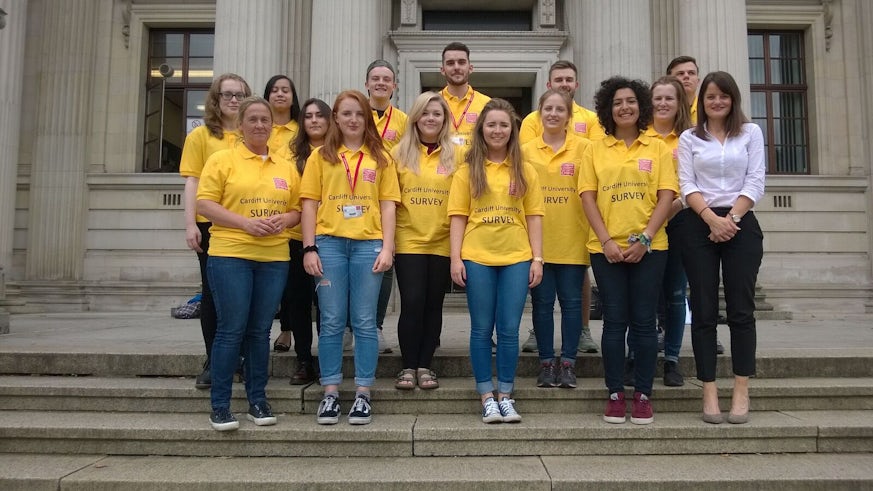In the footsteps of Champions
30 May 2017

Cardiff University research will examine the impact of the Champions League Final held in Cardiff.
As 170,000 football supporters descend on Cardiff for the 2017 Champions League Final, researchers at Cardiff University will be investigating how supporters attending both the men’s and women’s finals travel to the capital and how much money they will spend. Supporters are being invited to take part in a survey that is being conducted by a team of 14 trained surveyors as part of a Cardiff University research scheme for Undergraduate students.
Dr Andrea Collins lead researcher at the School of Geography and Planning has undertaken similar studies at previous major sport events in Wales including the FA Cup Final, Rugby Six Nations and stages of the Tour de France Grand Depart in London. Speaking about her research Andrea said: “Our studies have consistently shown the way in which supporters travel to events has one of the most significant environmental impacts. This study will provide us with a better understanding of supporter profiles, their spending patterns and travel choices. It will enable organisers of future events in Cardiff and beyond to develop effective transport plans and encourage supporters to travel in a more sustainable way”.
Students will be talking part in this research as part of the Cardiff Undergraduate Research Opportunities Programme (CUROP). The programme offers students a grant for up to eight weeks to take part in a summer placement working with supervision on research projects.
The projects provide unique opportunities for students to be part of live research, enhance their academic skills and make a more informed decision on furthering their research at postgraduate level.
The Programme is now considered to be one of the largest undergraduate research schemes in the UK. More than 500 students have taken part in placements since 2008, working on such diverse projects as historical archival work, searches for new planets and cancer research.
